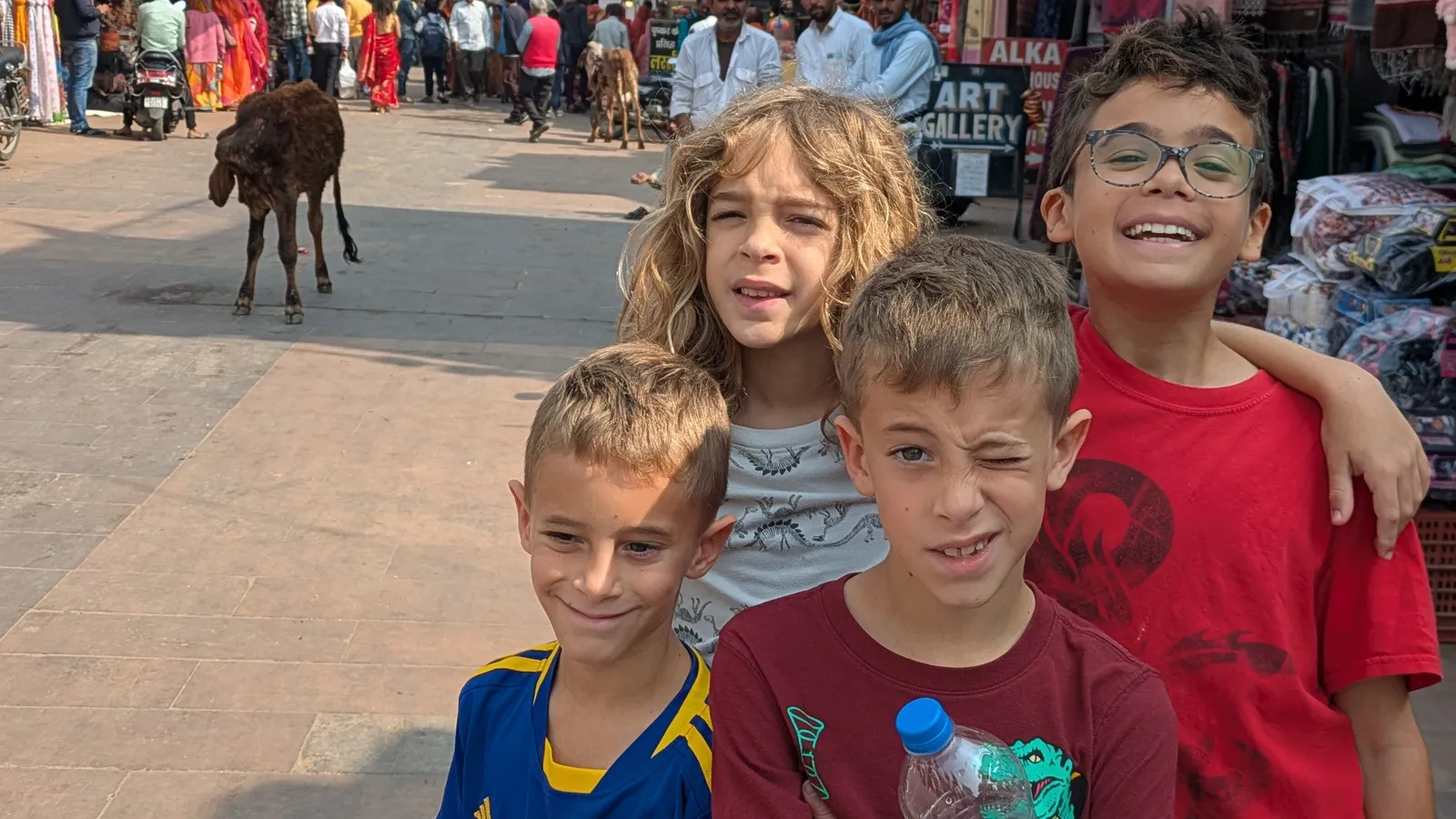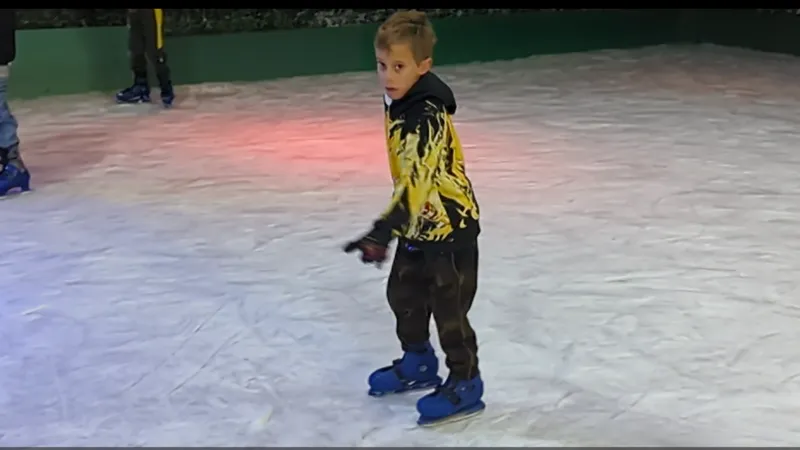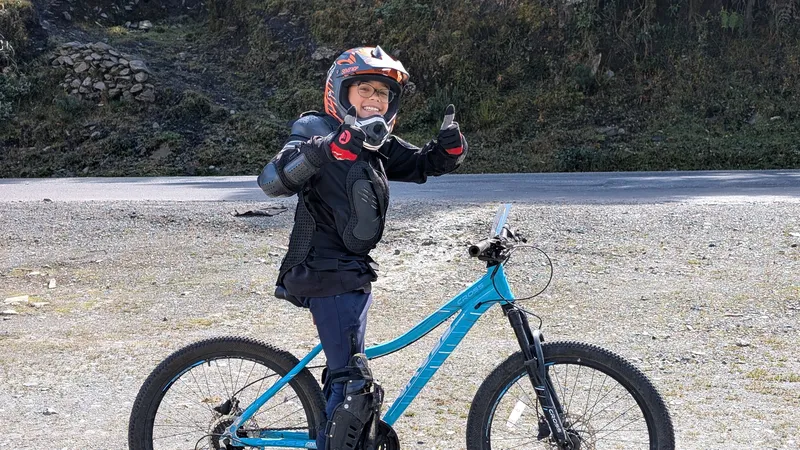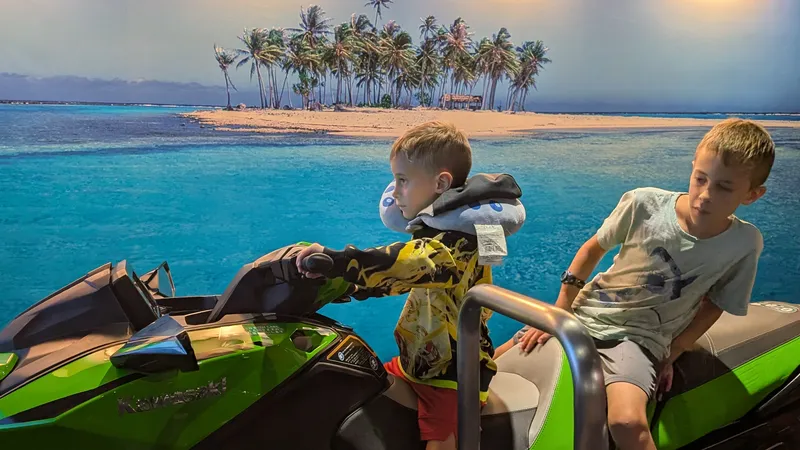The saga of Friday January 31, 2025 to Sunday February 2, 2025 moving from Agra, India to Pushkar, India
We awoke on the earlyish side to have breakfast before beginning a seven- hour drive from Agra to Pushkar with our driver Ajay who would be with us for the next two weeks. We were packed in like sardines, and this car was not anywhere as nice as the one we had in Agra, but there were snacks and water galore! If all went according to plan, we would be in Pushkar in time for Shabbat. If it didn’t…well, we don’t think about that. I was proud of myself for thinking to structure the car ride in chunks for the kids: journaling, reading, games, screens, math riddles, general riddles, reading, screens, and more reading. It worked well and made the time feel much less amorphous. It also meant the screen time wasn’t one long stretch that could lead to worse meltdowns than shorter sessions seem to do. After the terrible parenting moment the day before, this made me feel like perhaps I wasn’t such a bad parent after all.
We arrived at the Hotel Brahma Horizon which clearly caters to westerners. I am not ashamed to admit how much I appreciated this because it meant western toilets in all their glory. Good toilet paper, working flush, and decent soap. Oh, and showers that didn’t drain into the main area next to the toilet or sink. You know what they say: It’s the small pleasures in life that make us happy. I did not know just how much that applied to a good, reliable toilet until that moment.
We settled in quickly and then walked to Chabad, which was thankfully ten minutes away. Unfortunately, we had to walk through a narrow road with a ton of cow poop. Pardon the French, but I can honestly say I have a much better appreciation for the phrase “a shit ton” after our time in Pushkar. While avoiding the cow dung, we also avoided motorcyclists and tuk-tuks coming in both directions. It was nutty, making our ten-minute walk feel like an eternity.
The food at Chabad was delicious, but completely vegetarian because no meat is allowed in Pushkar due to religious reasons. Pushkar is the only Brahman city, meaning it is the only Hindu city dedicated to their god Brahma. The Brahmans are priests and maintain a strict vegetarian diet. The boys were disappointed to learn there would be no meat, but they did enjoy the Israeli salad. More importantly, there were other children to play with. By the end of the evening, the boys had made friends with the rabbi’s children, slipping and sliding across the floor in some game that I could not figure out and communicating in part English part Hebrew. Meanwhile, Chaim and I sat with two lovely Israeli women who had moved to Koh Phangan, Thailand, a British woman in her sixties, and a Canadian/LA woman who had just participated in a ten-day silent retreat at an ashram. The boys could not fathom remaining silent for ten days. To be fair, they can barely remain silent for more than a couple of minutes unless they’re reading or being bribed with some reward. But to know there are people who can and choose to do it is still something valuable. Everyone we met was shocked to hear that Americans were traveling for a year with their children. It was just “so not American.” We know we aren’t the only Americans to do this, but it is interesting how much of the world assumes Americans don’t or won’t do something like this, especially with children.
As we got to talking with our seatmates, we learned that the British woman had participated in the Full Moon festival in Koh Phangan many decades ago where she enjoyed many mushrooms. She said that particular experience had terrified her so much she couldn’t even begin to imagine setting foot on Koh Phangan again. Unfortunately for her, our two Israeli neighbors spent much of the meal trying to convince her to return because they love the island so much. I felt for this woman, who had obviously been traumatized and had no interest in returning. Our new friends also tried convincing Chaim and me to try shrooms because they are natural and “so freeing.” To be clear, neither of us is interested.
Back at the hotel, Chaim and I assessed the door-lock situation and determined that we could safely let the boys stay in their own room. After ten days of bunking together with our children in various configurations, a room to ourselves became the equivalent of a date night!
Shabbat morning we slept in a little before walking to Chabad. There, I had the chance to speak with the Rebbetzin while waiting for a minyan. She told me their family has been living in Pushkar for twenty-five years and all eleven (yes, eleven) of their children were born there. Wow! At one point her youngest fell on her head making a loud cracking sound. I was so impressed when, instead of rushing to her, she calmly walked over, slowly surveyed the situation, gently told her daughter to try moving her fingers and toes, and then very slowly encouraged her to stand up on her own. Only after her daughter stood up independently did the Rebbetzin scoop her up, hold her tightly, and speak soothingly. The Rebbetzin didn’t let go of her daughter until her daughter was ready to let go. What a master class in parenting! I hope to be that composed one day.
Lunch was lovely. The boys spent much of the afternoon playing games with the other children and the Israeli backpackers who were with us. The social opportunities filled their souls. About 4:00PM we returned to the hotel. Along the way, we passed through a wedding party happening smack in the middle of our very narrow street all while cars, cows, motorcyclists, and tuk tuks were trying to get through. That’s India for you!
At the hotel, Chaim tried to take the boys swimming while I napped. Sadly, the pool was too cold. When I woke up, I bribed them with candy to go on a walk and explore with me. As we exited the hotel, the boys noticed a sign offering in-house massages. Amichai very sweetly told me I should get one. Little did he know I was planning on it!
Our walk was relatively short, maybe fifteen minutes because there wasn’t much to see around where we were aside from a beautiful Sikh temple whose outside we explored. The Sikh temple included a small “moat” of water separating the impure from the pure. One takes off their shoes before stepping over the boundary and entering the temple.
As we continued on our walk, we passed many signs in English and Hebrew. The English signs were riddled with spelling and grammar mistakes that the boys found humorous, especially because I am constantly correcting the boys’ grammar (No judgement! That’s how we’re learning English this year.) Amichai loved pointing out the mistakes, calling to me at one point to say, “Mommy, you would hate these grammar mistakes.” I was proud they could identify the mistakes and edit them correctly.
Eventually, as we were walking toward Chabad for maariv/evening prayer service and Havdalah/end of Shabbat ceremony, we saw someone from Chabad walking into random bars and hotels looking for Jewish men who could help make a minyan/quorum of ten men needed for an Orthodox prayer service. A young Israeli backpacker with a backpack and guitar in hand left his hotel to help make minyan. I couldn’t help but smile at the beauty of the moment. This is what it means to be Jewish. A non-religious Jew becomes the guy who helps make a minyan just by showing up because a fellow, religious Jew needed his help.
After Havdalah, we elected to return to the hotel because dinner would not be ready until much later and we were tired. Back at the hotel, the boys enjoyed some screen time while Chaim worked, and I got my first ayurvedic massage ever. Honestly, it was a strange experience. The massage room was down the hall, and the massage took place in a fully lit room – the ones I’ve had in the past are typically dimmed, you know, for ambience. Outside, a wedding was taking place nearby with fireworks blasting loudly overhead. It was the opposite of a relaxing experience.
I knew nothing about ayurvedic massage and hadn’t made a point of researching it before signing up for one. Turns out it’s all about blood circulation and blood flow and conducted at a very fast pace. At the end of the massage, I was lathered in coconut oil and told to wait an hour to shower with milk butter. I didn’t have milk butter, nor did I have a way of acquiring milk butter. I’m fairly certain this lovely masseuse knew that and still she gave me these instructions. Okay. I waited an hour and then showered with whatever soap the hotel provided, hoping it didn’t magically undo everything she had just done. Next time I need an energizing massage I’ll go with ayurveda. Until then, I’ll stick with my deep tissue and relaxation massages.
We tried going to sleep at a decent hour, but Amichai was coming down with something. He was so stuffy and spent the night coughing, finally falling asleep at 5:45AM.
Sunday morning, we slept in a bit to recover from the sleepless night. It was nice to have a slower start to the day. Chaim worked from home while the boys and I visited Jagatpita Brahma Mandir (a temple), Pushkar Lake (a sacred lake known for having medicinal properties), and the Pushkar market. It was unbelievably crowded because it was Saraswati Puja. It felt like every single person was making a pilgrimage to the temple and the lake to worship Saraswati, the wife and/or daughter of Brahma. Normally, the boys walk ahead or behind me without issue. Given the crowd, we held onto each other like it was a matter of life or death praying we wouldn’t be separated by the throngs of people walking in myriad directions.
At one point, it was so crowded that a cow bumped into me! It looked at me like I was the problem. Only in India. Many of the cows in India have horns, so we walked away as quickly as possible. Strangers invited us to visit the temple, telling us where to take off our shoes, to buy their flowers and powders (which we declined), and where to go. Again, we prayed our shoes would be there when we got back. So much trust was needed in a situation like this. But when in Rome…or I guess, in this case India…
After removing our shoes, we climbed the seventeen steep and high stairs up to the main area where we ended up in a line that passes in front of a statue of Brahma. Although we moved through the line, we found it separated into two sections allowing us to appreciate the artistry without participating in worshipping. It was so different from how we pray at home and at shul/synagogue. Afterward, the boys and I discussed the differences between praying in a synagogue or church and what we observed in Jagatpita Brahma Mandir. This led to a great conversation about monotheism verses polytheism, giving the boys a concrete way to imagine what it meant for Abraham to attempt spreading religious ideas of monotheism in a polytheistic world.
A discussion about idol worship and idolatry came up, too. As Jews, any praying to or worship of any person, place, or thing other than God, is considered idol worship. Our experiences in India, and in particular at this temple, offered all of us a concrete understanding of the Jewish concept of idolatry. Navigating the conversation in a way that maintained respect for Hindu beliefs and practices was challenging because monotheism and polytheism are antithetical to one another. But, the boys did a great job. It also led to hard questions, like when Shai said, “If the Hindus believe Brahma created the world, and the Christians believe in Jesus, and we believe Hashem created the world…Well, who did create the world?” Usually, I turn the question back to the boys to answer these kinds of questions for themselves or give them more context, but in this moment, it felt important to state unequivocally that “we believe in Hashem/God, so Hashem.” A satisfactory answer? For younger children who need a strong foundation, yes. For everyone else, probably not. For me, it was good enough for the moment while being jostled by everyone around us. Since this moment, it has become a conversation we return to often.
Our shoes were right where we left them when we exited the temple, along with the individuals trying to convince us to buy their flowers and powders. We walked to the lake where more vendors tried to convince us to take powders and bathe in the lake for good luck. We declined and then discussed the importance of understanding other’s cultures without participating in ways that are inauthentic to us or feel like we are appropriating someone else’s culture. The boys took this to heart. From this point forward they were quick to ask and eventually advise us on what aspects of different cultures we should partake. Interestingly, we noted how disappointed the priests and other people were when we declined receiving a bindi (the powdered dot that is placed on the forehead for good luck, health, and good karma) and entering the lake. In some ways, exploring similarities and differences between Judaism and Hinduism did wonders to strength the boys’ sense of their own Jewish identity. It is remarkable to witness how easily our boys were able to accept their own way of living while maintaining a deep respect for others who believe and practice differently. Offers a modicum of hope in these times.
We left Pushkar Lake and meandered through the Pushkar market, which was bustling. Throughout the market, individuals would do double takes of the five us, marveling at how many children were with me. “Wow! Four children” followed us as we walked. The boys and I talked about how most Indian families we saw walking around had one or two children with them. Indeed, the birthrate in India has been about 2.01 for the last few years. Just like in Europe, all I could think was Seriously? You should see the Chabad families. We walked for about a half an hour stopping only briefly to peak inside some stores. The air quality and close quarters were starting to get to the boys who began pleading to return to the hotel. I finally agreed, but not before we stopped in a small pharmacy-looking store where we could pick up some balm to cure Amichai’s stuffy nose. It worked wonders.
Instead of heading back to the hotel, I took the boys straight to Chabad for lunch. I figured they were starving, and another great meal before leaving Pushkar would be wise. The boys devoured their food and then had a grand time playing with the rabbi’s children. Eventually, Chaim finished working and met up with us to grab a bite before we embarked on our next five-hour drive.
It was hard to leave Pushkar when there were so many children to play with. We hoped we would encounter more children soon. With stomachs full we drove to Jaipur.



